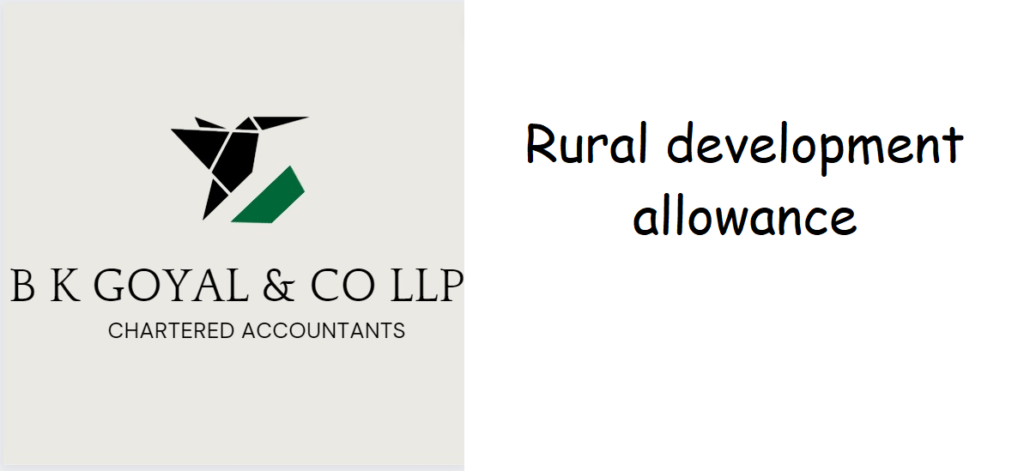Are you looking to understand about Rural development allowance ?
This detailed article will tell you all about Rural development allowance.
Hi, my name is Shruti Goyal, I have been working in the field of Income Tax since 2011. I have a vast experience of filing income tax returns, accounting, tax advisory, tax consultancy, income tax provisions and tax planning.
Rural development is of utmost importance for the Indian government, and it has introduced various policies and schemes to uplift the socio-economic status of rural areas. One such measure is the Rural Development Allowance that comes under Section 35CC of the Income Tax Act. The primary objective of this allowance is to motivate businesses to take up rural development projects by providing them with a deduction of of the amount spent on eligible projects from their taxable income.
The projects that are eligible for the Rural Development Allowance include the establishment of essential infrastructure like schools, hospitals, roads, and bridges, as well as the promotion of rural industries such as handicrafts and handlooms. Other eligible projects comprise of providing fundamental amenities like clean drinking water, sanitation facilities, and electricity to the rural areas. However, these projects must be completed within three years of the financial year in which the expenditure was incurred, and they must not be undertaken in areas within the limits of a municipal corporation or cantonment board.
To avail of the Rural Development Allowance, businesses must procure a certificate from the authorized entity certifying that the project meets the eligibility criteria. The certificate must be obtained before filing the tax return for the relevant year. It is essential to note that only businesses are eligible for the Rural Development Allowance, and not individuals.
The Rural Development Allowance is a significant initiative towards promoting rural development and encouraging businesses to invest in rural India. It benefits businesses by reducing their tax liability, and it also contributes to the overall development of rural areas and improves the standard of living of the rural population.
In conclusion, the Rural Development Allowance under Section 35CC of the Income Tax Act is a noteworthy step towards achieving sustainable rural development. It provides businesses with the opportunity to invest in the development of rural India and contribute to the growth of the country as a whole.
section 35CC of Income Tax Act, 1961
Section 35CC, of Income Tax Act, 1961 states that [Omitted by the Direct Tax Laws (Amendment) Act, 1987, as amended by the Direct Tax Laws (Amendment) Act, 1989, w.e.f. 1-4-1989. Original section 35CC was inserted by the Finance (No. 2) Act, 1977, w.e.f. 1-9-1977.]
